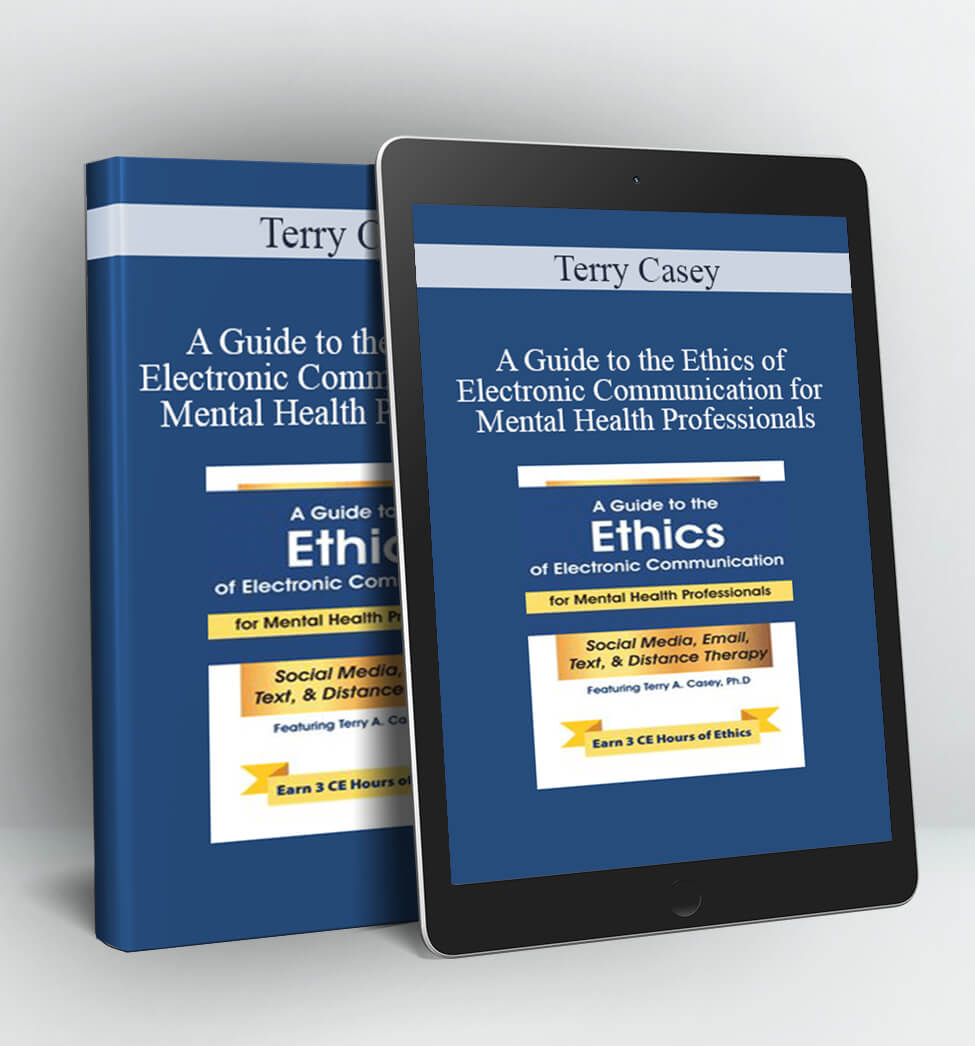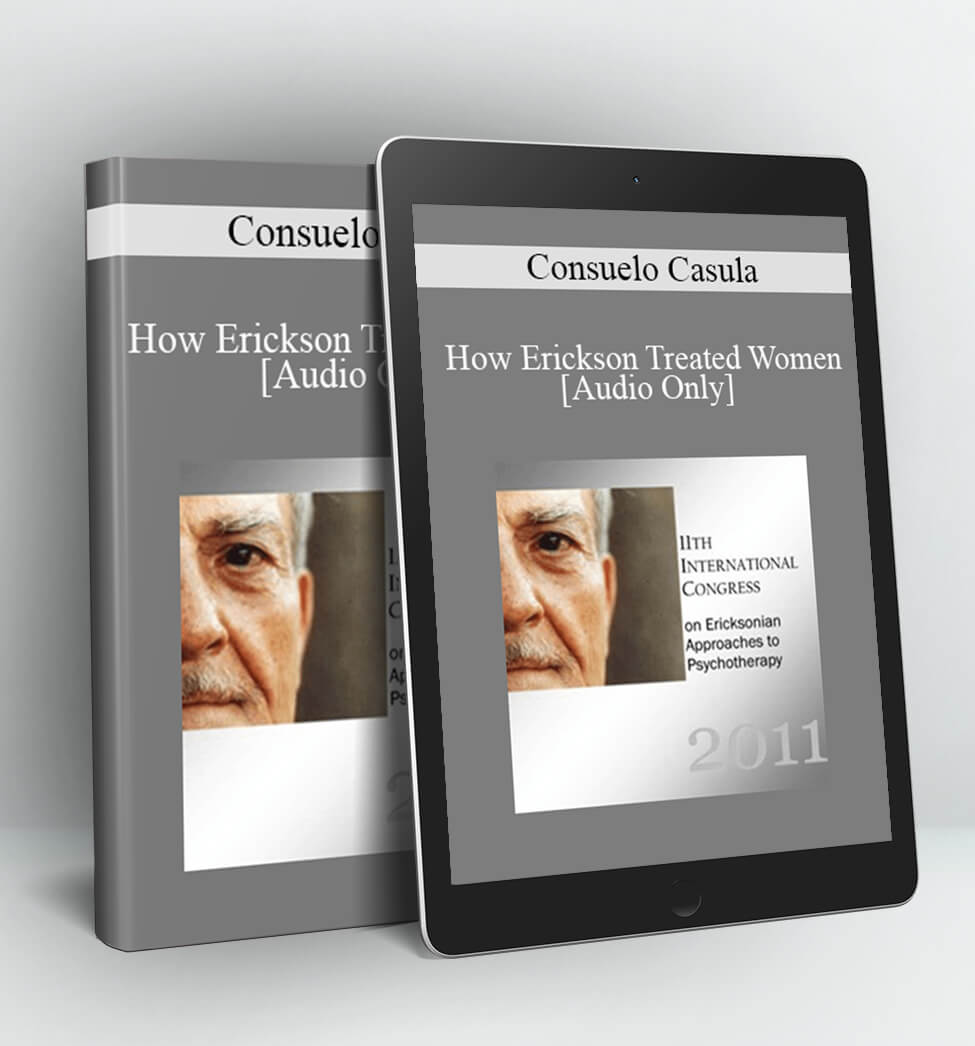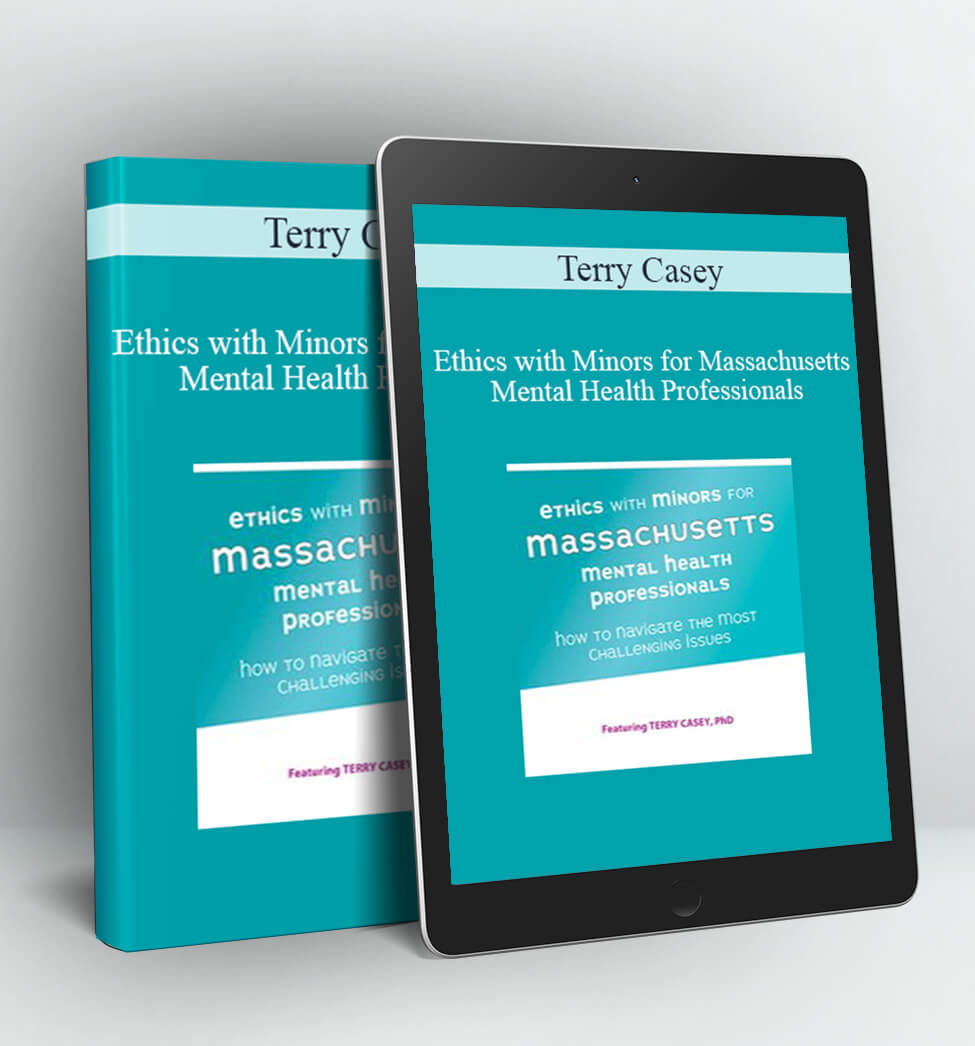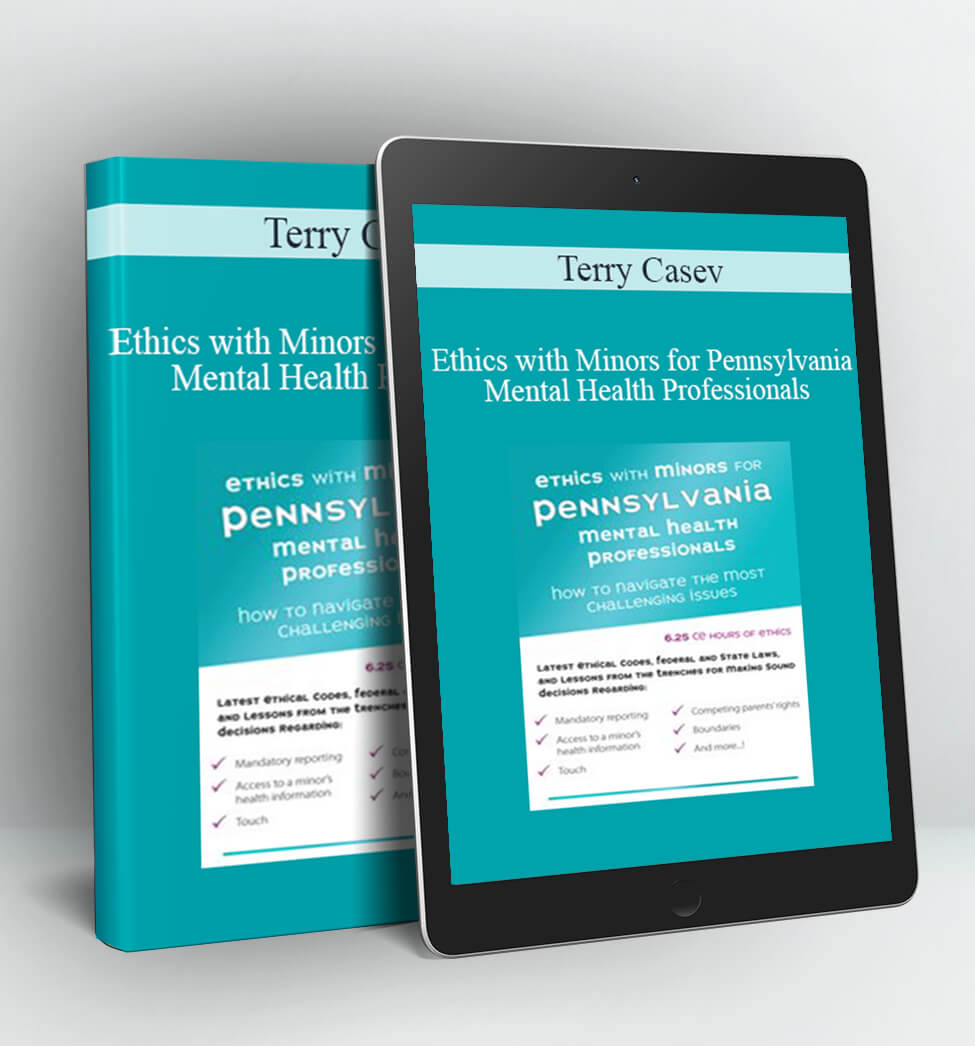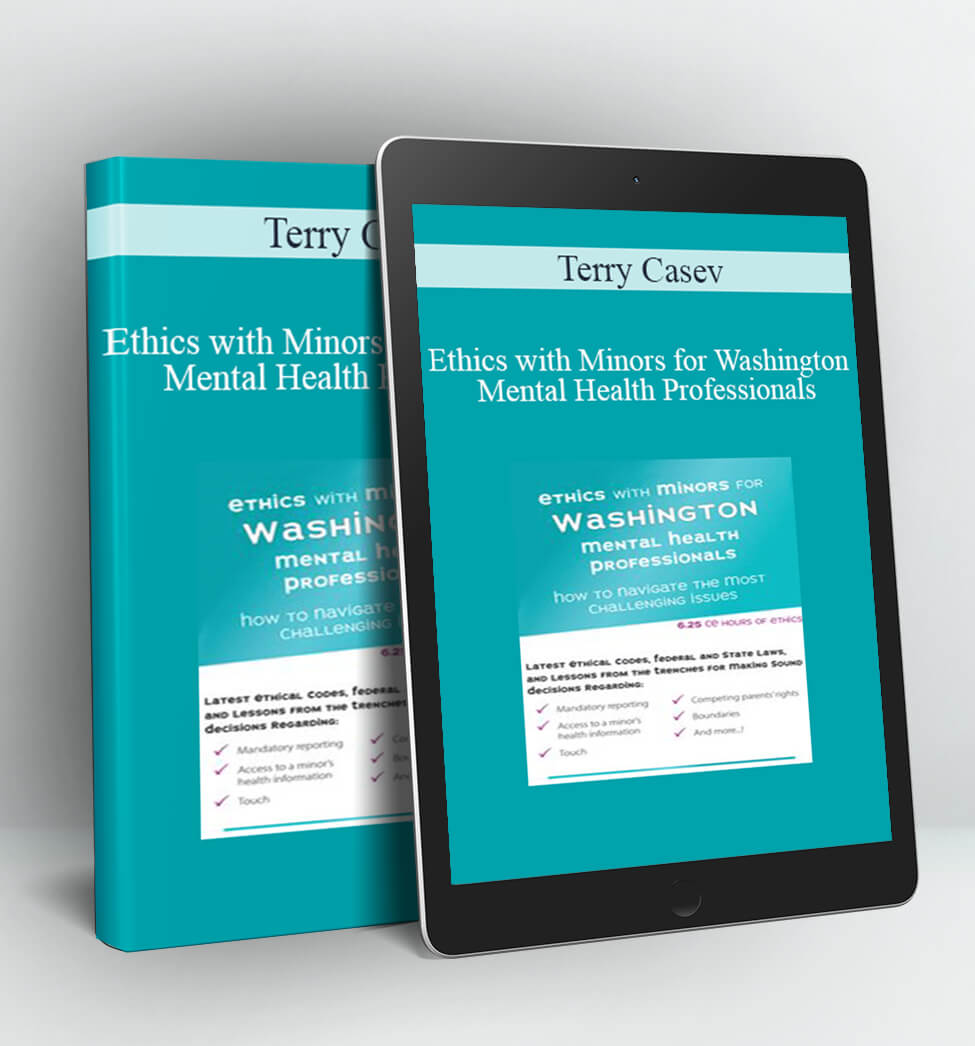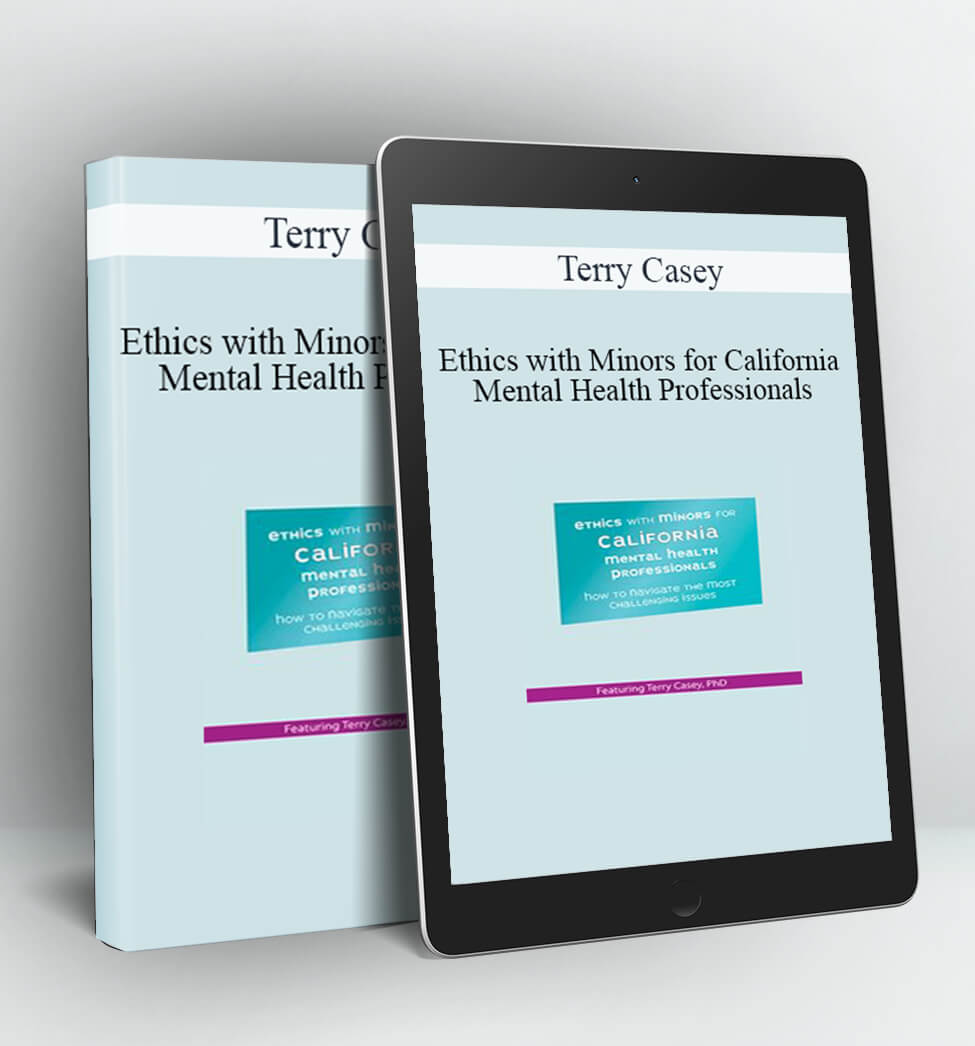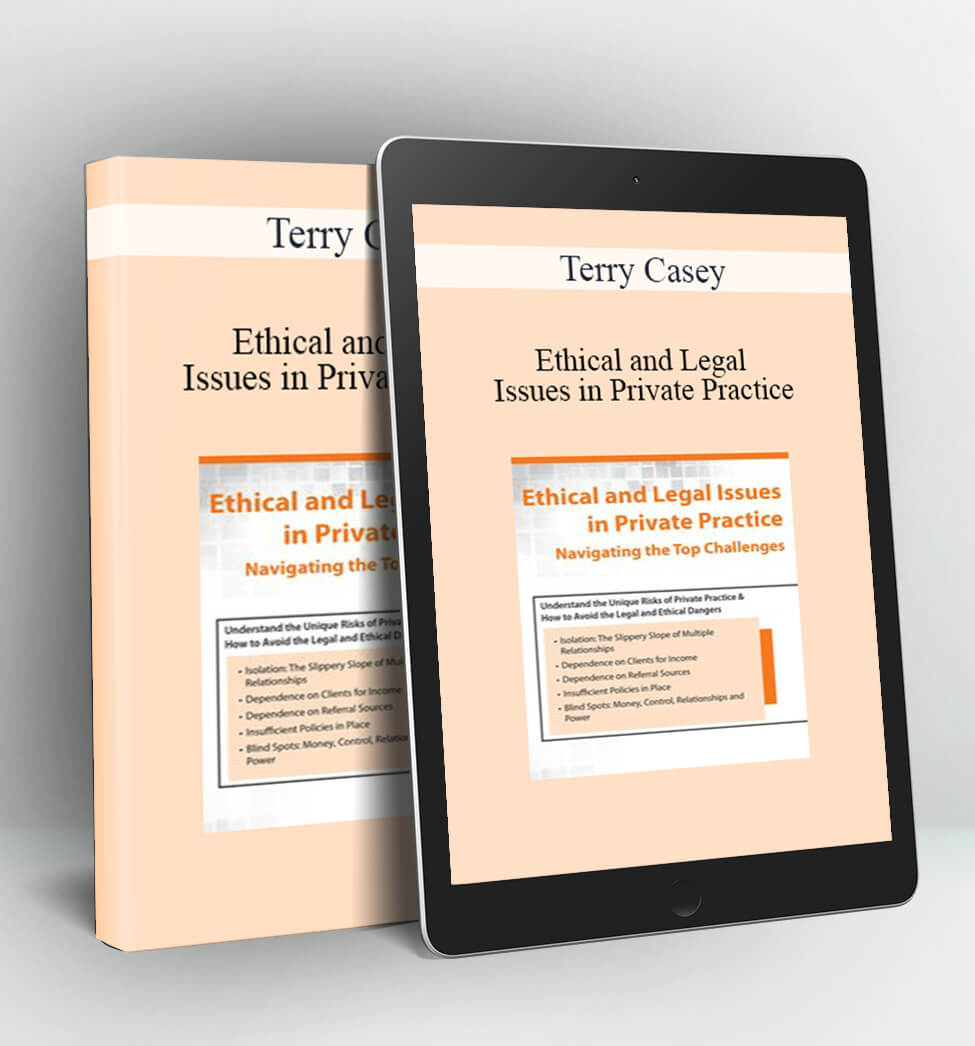A Guide to the Ethics of Electronic Communication for Mental Health Professionals – Terry Casey
- Faculty:
- Terry Casey
- Duration:
- 2 Hours 49 Minutes
- Format:
- Audio and Video
- Copyright:
- Oct 16, 2019
Description
You know that to be successful as a clinician, you may need to adapt to the technology expectations of your clients.
However, the more you integrate technology into your clinical practice, the more legal and ethical risks arise.
Electronic communication, such as social media, email, text, and distance therapy are here to stay and the unique ethical complexities are growing by the day!
In this recording, Dr. Casey helps you navigate this legal and ethical minefield.
You’ll learn how to:
- Create an action plan to avoid the ethical dangers of social media
- Avoid the aspects of email and texting that can lead to upset clients or lawsuits
- Have a successful and ethically sound distance therapy practice
Whether you’re a counselor, psychologist, social worker, or anyone in the helping professions, this program will provide an indispensable guide for how to thrive in the world of digital technology.
The future of your practice depends on it!
Handouts
| Manual – A Guide to the Ethics of Electronic Communication for Mental Health Professionals (2.2 MB) | 97 Pages | Available after Purchase |
Outline
Social Media – How to Avoid Ethical Nightmares
- Multiple Relationships and Top Boundary Issues
- Virtual relationships
- Presence on social media: professional vs personal
- Clients’ privacy and social media – Dangers of “creeping”
- Clinical example 1 – Danielle, Facebook & Twitter
- Clinical example 2 – Lauren’s posted pic: Oops!
- Clinical example 3 – “Well, that’s interesting…”: What Jennifer saw
- Creating a Solid Action Plan to Avoid Ethical Issues
- Establish an Effective Social Media Policy (Examples Provided)
- Post social media policy practice/organization’s website
- Incorporating into informed consent process
- Separate personal social media from professional social media
- Respect the privacy of client’s social media presence
Email and Texting – Navigating the Legal Traps
- Encrypted vs Unencrypted Email
- The importance of encrypting emails
- How to encrypt emails
- Recommendations for usage
- HIPAA Compliance Concerns with Texting
- Texting & Client Expectations
- Confidentially & Security Concerns
- Potential for Confusion
- Case Studies:
- Example #1 – Dr. Baron, email and the at-risk client
- Example #2 — Anna and Joy: Texting issues
Navigating Distance Therapy – 6 Ethical & Legal Keys
- Technological Standards Must be Met
- HIPAA compliance
- Business associates agreements
- Practicing Across State Lines
- Subject to the laws/regulations of both states
- Technological Competence and Impact on Client
- Unique Informed Consent Concerns
- Policies and Procedures
- Ensure data protection and avoid unintended access/disclosure
- Insurance Issues
- Client’s insurance policies – reimbursement issues
- Professional liability insurance – Is distance therapy covered?
- Clinical example – Joyce and the distance therapy dilemma
Faculty

Terry Casey, PhD Related seminars and products: 20
TERRY CASEY, PhD, is a licensed psychologist, HSP health service provider with over 30 years of professional experience, including a 16-year tenure as the director of counseling & psychological services for a non-profit agency with over 30 counselors at over a dozen locations. He is in private practice in Franklin Tennessee, teaches ethics and professional issues in counseling at Lipscomb University’s graduate program in clinical mental health counseling, and guest lectures at Trevecca Nazarene University’s PhD program in Clinical counseling. Dr. Casey also served for several years as the chair of the ethics committee for the Tennessee Licensed Professional Counselors’ Association and in an advisory capacity for graduate counseling programs at two universities. He has presented frequently on ethics to organizations such as the American Counseling Association, the Tennessee Licensed Professional Counselors Association, the Nashville Area Association of Christian Counselors, and others. For more information, visit his practice website at rencounselingtn.com.
Speaker Disclosures:
Financial: Dr. Terry Casey maintains a private practice. He is an adjunct faculty member at Lipscomb University. Dr. Casey receives a speaking honorarium from PESI, Inc.
Non-financial: Dr. Terry Casey is a member of the American Psychological Association and the American Counseling Association.
Access Download A Guide to the Ethics of Electronic Communication for Mental Health Professionals – Terry Casey right now!
Delivery Method:
After your purchase, you’ll get access to the downloads page. Here, you can download all the files associated with your order.
Downloads are available once your payment is confirmed, we’ll also send you a download notification email separate from any transaction notification emails you receive from Vinlearn.

